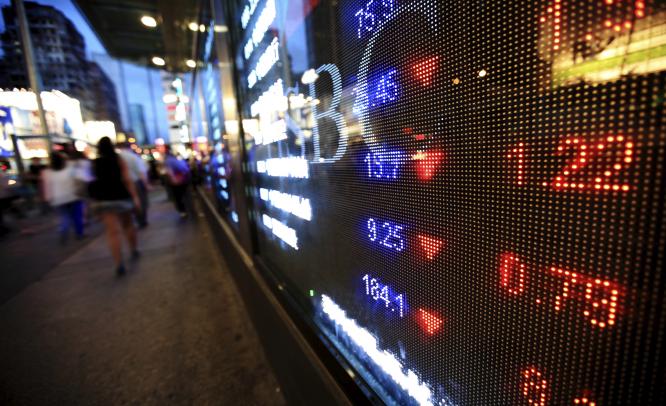The surprise was not that the government intervened, but the manner in which it did
Suparna Goswami Bhattacharya
July 17, 2015: While the world is focused on the Greece crisis, there is something more serious brewing in the east. The tumbling stock prices in China has left everybody wondering what went wrong with the market that grew by 150% in the past one year.
More than 40 million new stock accounts were opened between June 2014 and May 2015. But the dream ride hit a roadblock. By the middle of July first week, the benchmark Shanghai Composite Index tumbled over 30% from its highs of June.
However, it is not the falling stock prices that have attracted the attention of the world. It is the way the Chinese government reacted to this crisis. The government has taken drastic measures to artificially halt the meltdown. These include stopping major investors from selling, a ban on short selling, injecting money into the market via the state-owned China Securities Finance Commission (CSF).
“The CSF could be a beast the Chinese authorities wish they had never created. It is a state controlled body that lends money to brokerages so they can provide loans to clients to buy in the stock market. And guess who the shareholders are. The major exchanges,” says Nigel Green, founder and chief executive of deVere Group, an independent financial advisory organisation.
The Communist Party newspaper warned people not to “lose their minds” over this and urged patience with the government’s measures to produce results. “If you read such a statement in the Communist Party’s own press, you do panic. Basically, the bubble has burst,” says Satyajit Das, a former banker and author of Extreme Money and Traders, Guns & Money.
Unlike in most other countries where the government has little control over the markets, the situation is quite different in China. Here the government can actually ban people from selling/buying shares or buy as many shares as it wants to boost the market. As a result, the Chinese government’s performance is linked to the returns people earn from the market.
To be fair, it is certainly not the first country to prop up the economy after a massive fall in stock prices. The US, Japan and many countries in Europe have done the same. But the manner in which the Chinese government intervened has made the situation more worrying that what it actually is.
For some, the government reaction is not surprising. “This kind of government reaction would be extreme in any other country, although it is not surprising within China. The Chinese government is hugely stability oriented, and moreover was a strong proponent of the bull market. Thus they felt obligated to intervene, even if unnecessary for economic reasons,” says Brian Jackson, Senior Economist at IHS Global Insight.
Impact on global market
“China’s financial market is not well integrated with global markets. But the worry is the combination of property bust, stock bust, banking system problems and slowing growth,” says Das.
The impact is primarily indirect and speculative. “In that sense, foreign markets are importing speculation from Chinese markets. The real impacts should be relatively limited over the medium term, once volatility settles down,” remarks Jackson.
One also has to take into account that China puts restriction on foreign investors when it comes to trading in their stock markets. For instance, they are not allowed to buy China A shares, which are shares of the renminbi that are purchased and traded on the Shanghai and Shenzhen stock exchanges. “But if the falling market leads to a financial crisis, and puts already weak banks under further stress, it will negatively impact the Chinese economy. Since China is closely interlocked with the global economy, weaker global growth and trade will follow. That can only be bad news for global stock markets,” says Tom Elliott, deVere Group’s International Investment Strategist.
The stock prices are hugely significant because it will send shock waves throughout global capital markets, not least because China is the world’s second largest economy and one of the largest consumers of commodities and other goods sold by other countries.
“As such, China, not Greece, is arguably the main cause for concern for investors right now. Bearing in mind the potentially enormous fallout of China’s plunging markets, I would urge investors to urgently reassess their portfolios to ensure they are appropriately diversified,” says Green.
Also Read:

